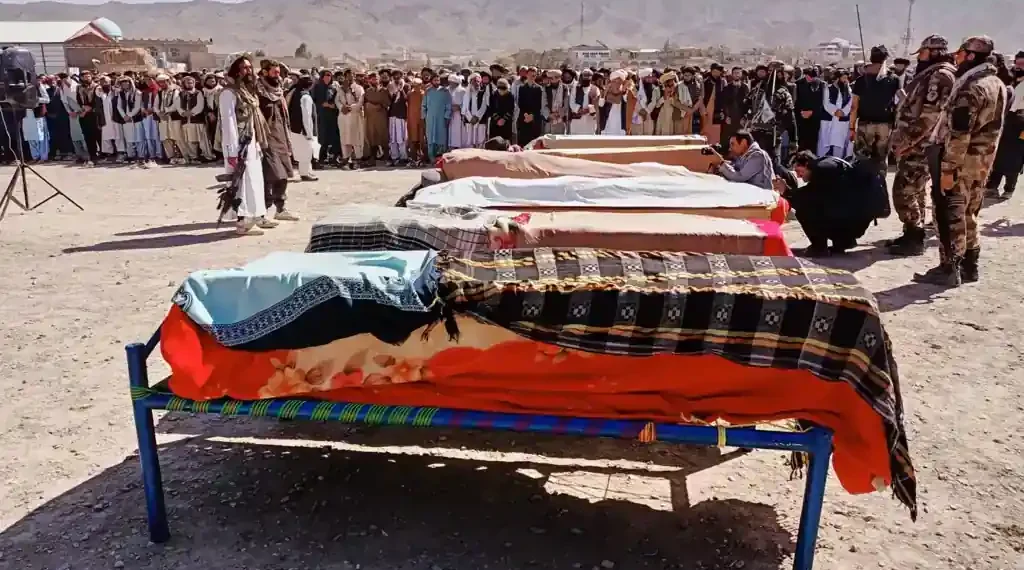Qatar announced that Afghanistan and Pakistan have agreed to an immediate ceasefire following more than a week of intense border fighting that killed dozens and wounded hundreds. The deal, mediated by Qatar and Turkey, marks the deadliest crisis between the two South Asian neighbors in recent years and aims to restore stability after a sharp rise in cross-border hostilities.
Diplomatic Mediation Leads to Fragile Truce
According to a statement from Qatar’s Foreign Ministry, both sides committed to creating mechanisms to sustain peace and hold follow-up talks in the coming days. Doha said it worked closely with Ankara to facilitate the negotiations, which concluded late Saturday after multiple rounds of shuttle diplomacy.
The ceasefire comes after more than ten days of escalating violence along the volatile border. Each country accused the other of unprovoked aggression, with both militaries launching retaliatory strikes. Afghan authorities denied harboring militants responsible for attacks inside Pakistan, while Islamabad said its actions were defensive and targeted only armed groups.
Escalation Threatened Regional Security
Pakistan has faced a surge in militant activity since 2021, when the Taliban regained control of Afghanistan following the withdrawal of U.S. and NATO forces. Security analysts say militant factions, including the Tehrik-i-Taliban Pakistan (TTP), have exploited the porous border to carry out attacks inside Pakistan’s Khyber Pakhtunkhwa province.
Regional observers warned that the recent clashes risked destabilizing an already fragile region where extremist groups such as the Islamic State affiliate (ISIS-K) and remnants of al-Qaida continue to operate. The conflict also drew concern from the United Nations and Western diplomats, who urged restraint and dialogue.
A temporary 48-hour truce had expired Friday evening, but within hours, Pakistan launched new airstrikes across the border into Afghanistan’s eastern Paktika province.
Pakistan Claims Targeted Raids, Afghanistan Reports Civilian Deaths
Pakistani security officials told the Associated Press that the air raids targeted hideouts of the Hafiz Gul Bahadur militant group, which Islamabad blamed for a deadly suicide bombing on a security compound in Mir Ali, Khyber Pakhtunkhwa, a day earlier. The officials claimed the operation killed “dozens of armed fighters” and caused no civilian casualties.
However, Afghan authorities reported a starkly different account. Officials in Paktika province said at least ten civilians were killed in the strikes, including women, children, and local cricket players who had been competing in a nearby match. The incident fueled widespread outrage in Afghanistan, with thousands attending funeral prayers the next day.
The Afghan Cricket Board announced it would boycott an upcoming bilateral series with Pakistan in protest. The International Cricket Council (ICC) said it was “saddened and appalled” by the deaths of “three young and promising Afghan cricketers.”
Public Grief and Political Condemnation
In Paktika, mourners gathered under open skies for mass funeral prayers as religious leaders used loudspeakers to condemn the attacks and call for justice. Zabihullah Mujahid, the Taliban government’s chief spokesman, denounced what he called “repeated crimes by Pakistani forces” and violations of Afghanistan’s sovereignty. He described the strikes as “deliberate provocations” designed to prolong the conflict.
The tensions highlight long-standing friction over the 2,611-kilometer (1,622-mile) Durand Line, the colonial-era boundary drawn by the British in 1893. Afghanistan has never formally recognized the border, viewing it as an imposed division of ethnic Pashtun communities.
Regional Rivalries and Security Challenges
Pakistan, meanwhile, has accused Afghanistan of allowing militants to operate freely from its territory and of failing to curb attacks across the frontier. Islamabad also alleges that its archrival India supports some armed factions inside Afghanistan — an accusation New Delhi has repeatedly denied.
In a speech at the Pakistan Military Academy in Kakul, Army Chief Gen. Asim Munir called on Afghanistan’s leadership to prioritize “mutual security over perpetual violence and progress over hardline obscurantism.” He warned that Pakistan would “not tolerate sanctuaries for proxy groups” operating from across the border.
Qatar’s Growing Role in Regional Diplomacy
Qatar’s mediation underscores its expanding influence as a regional peacemaker, following its previous diplomatic efforts in Afghanistan, Sudan, and between Israel and Hamas. A Qatari Foreign Ministry spokesperson said both Afghanistan and Pakistan had “expressed readiness to cooperate toward a lasting peace that safeguards regional stability and civilian lives.”
Turkey, which also participated in the talks, said it would continue to work with Doha and both governments to implement monitoring mechanisms and prevent further clashes.
Fragile Calm Amid Deep Tensions
Despite the ceasefire, both sides remain wary. Analysts caution that the truce could collapse without meaningful follow-up discussions and verification protocols. Border areas remain heavily militarized, and mutual distrust persists after years of sporadic violence and failed peace efforts.
Residents in both countries’ frontier regions have expressed cautious hope. “We have suffered enough,” said Gul Rahman, a trader from Khost near the border. “All we want now is for this fighting to stop so people can live in peace.”
The latest ceasefire represents a critical but fragile step toward de-escalation in one of South Asia’s most volatile fault lines — a reminder of the region’s complex web of history, politics, and unfinished conflict.

This article was rewritten by JournosNews.com based on verified reporting from trusted sources. The content has been independently reviewed, fact-checked, and edited for accuracy, neutrality, tone, and global readability in accordance with Google News and AdSense standards.
All opinions, quotes, or statements from contributors, experts, or sourced organizations do not necessarily reflect the views of JournosNews.com. JournosNews.com maintains full editorial independence from any external funders, sponsors, or organizations.
Stay informed with JournosNews.com — your trusted source for verified global reporting and in-depth analysis. Follow us on Google News, BlueSky, and X for real-time updates.













